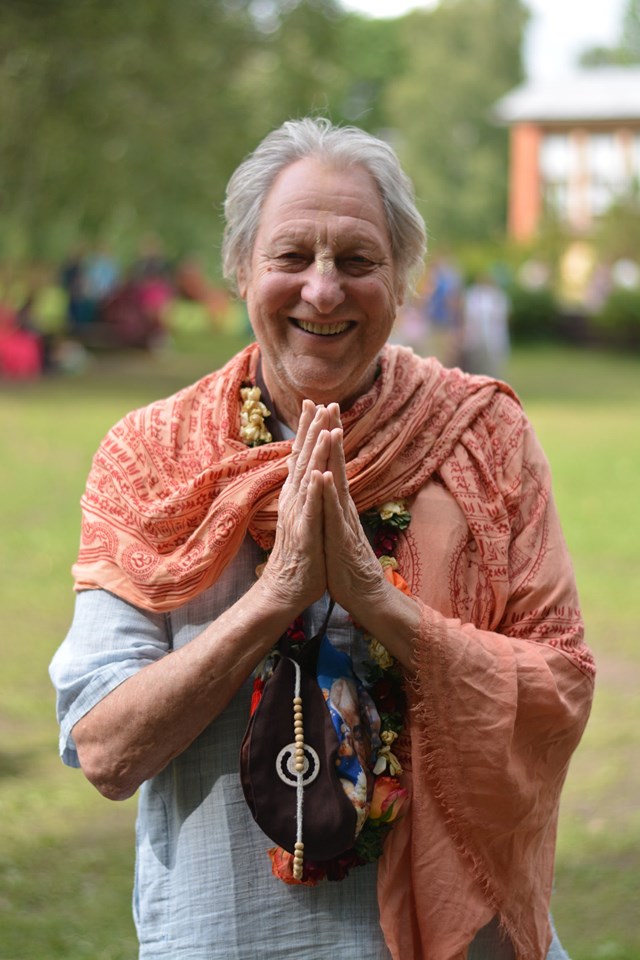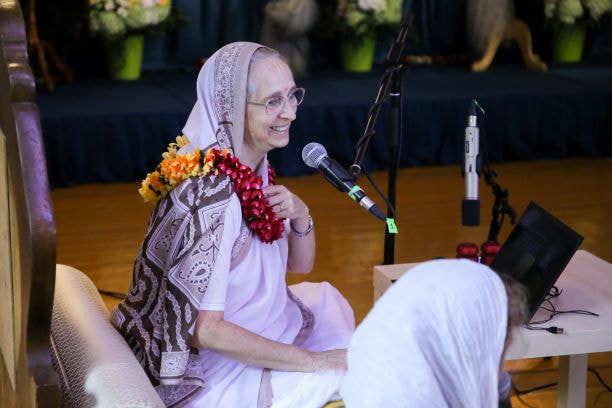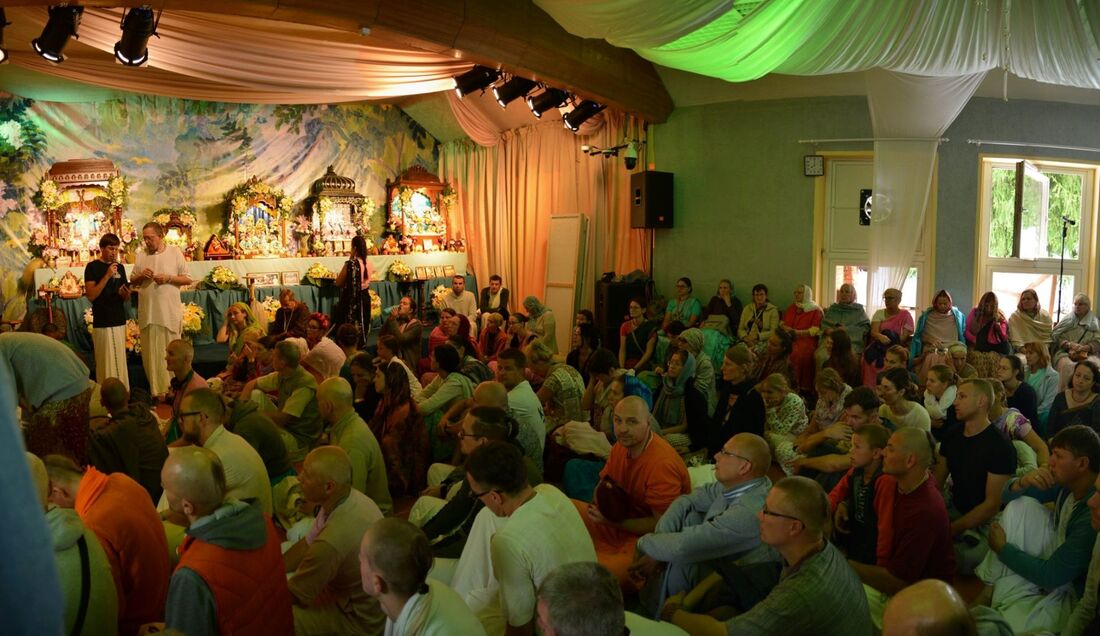We had the good fortune to be in the uplifting association of HH Niranjana Swami, HH Bhakti Caitanya Swami, HG Gurudas Prabhu and Mother Urmila. I had recently read Gurudas Prabhu's book about his association with Srila Prabhupada, and it was wonderful to meet him now in person. The days were filled with lots of Krishna Katha and kirtan, and connecting with devotees.
In our relationship with equals, envy manifests by becoming proud of our own activities and accomplishments. We like to boast and chant our own glories to impress others, with the ultimate hope of establishing the fact that we are a little superior - and not equal after all! We can imagine two traveling preachers meeting, and one starts to boast - in the name of simply sharing with his friend: "Oh, I had a wonderful time in India! Let me show you some YouTube videos of me leading the kirtana at the Kumbha-mela! And then I gave a big pandal program at another place speaking for more than an hour in front of thousands of people, followed by a big Ratha Yatra festival where I lead the kirtana again." And finally he asks: "And what about you - have you also been doing something?"
Again, it can be rather subtle - all in the name of sharing. One may ask: "How can there be anything wrong with this? "It is a matter of consciousness, whether it takes place in the mood of boasting and showing off, or simply sharing in humility with a friend, passing on the credit to guru and Krishna. Amongst equals, envy manifests in competition and rivalry to establish who is just that little bit superior after all.
Our non-envy towards equals manifests in a very confidential and sweet friendship based on serving each other and inquiring from each other. In fact, there is also a certain kind of competition taking place - who is inferior. Both push each other forward by inviting the other to speak, to lead the kirtana, in the mood of 'I want to hear from you! You are so much more experienced and advanced!' Such is the natural humility of a Vaishnava, always considering himself to be less advanced. Both are eager to understand each other's secrets of success: 'Prabhu, tell me, how did you distribute so many books for so many years? What's your secret?' And the other person inquires: 'And how do you manage to stay a brahmacari for so many years? What's your secret?' So we can experience a special intimacy based on a deep humility of seeing ourselves junior and wanting to learn from the other. It is a very confidential intimacy and friendship only found amongst equals who are non-envious.
Indeed, the association with equals brings the most subtle and pinching forms of envy from the most secret and hidden corners of our heart to the surface. In this relationship, we have to show our true colors - whether we naturally consider ourselves to be a humble servant, or whether we want to establish our superiority and be master. In no other relationship is our false ego more provoked than here. In fact, we can observe that most conflicts in our ISKCON communities as well as in the secular world come about through ego clashes and power battles amongst those of similar capabilities and influence.
We may all have the experience of how intense the atmosphere in the kitchen can be, when two equally expert cooks are cooking lunch for their guru. If one is expert and the other a helper, then there is no problem whatsoever. But if both are equally expert, then immediately the mood of rivalry may appear and contaminate the atmosphere. Both experts want to prove that they know better what Guru Maharaja likes. Or two equally experienced pujaris dressing the Deities for Janmastami. Again, it can be an intense experience, both wanting to prove to each other that they know best and have nicer ideas on how to beautify Their Lordships.
To share our own influence with somebody of similar influence is most challenging for our false ego. If such sharing takes place outside of our circle of influence - such as the holy dhama for example - then this is much less challenging. However, if one person has to welcome another into his circle of influence, under the 'risk' that one's visitor may be more successful and appreciated than oneself, it is a direct challenge to one's envy in the heart. And it will be exposed. Only a non-envious person can truly desire another to be more recognized and glorious than him.
When our four-headed Lord Brahma went to see Lord Vishnu in Vaikuntha, he was stopped at the gate. Upon Lord Vishnu's request the gate keepers asked him which Lord Brahma he was. Lord Brahma became irritated at this question, responding, "I am Lord Brahma! Lord Vishnu doesn't know who I am?" His false ego got offended, and thus Lord Vishnu summoned many Lord Brahmas from various universes - some being with ten heads or even a hundred heads. Lord Vishnu arranged equal association for him, which instantly deflated his pride and thus purified him.
On the 11th of August I flew on to Odessa/Ukraine....
Your servant, Devaki dd







 RSS Feed
RSS Feed
